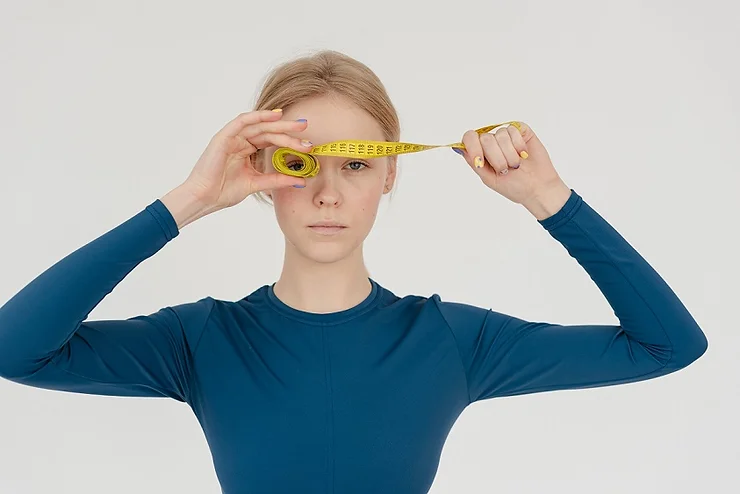Everyone has moments of insecurity about their appearance—whether it’s disliking a crooked tooth, worrying about acne, or wishing their hair looked different. For most people, these concerns come and go. But for individuals with Body Dysmorphic Disorder (BDD), these thoughts become obsessive and deeply distressing, interfering with their daily lives.
If you’re wondering whether you or someone you love might be dealing with BDD, understanding the symptoms, effects, and treatment options is an important step toward healing.
What is Body Dysmorphic Disorder (BDD)?
Body Dysmorphic Disorder is a mental health condition where a person becomes fixated on one or more perceived flaws in their physical appearance—flaws that are either minor or completely unnoticeable to others. Despite reassurance, people with BDD often believe they look abnormal or unattractive.
Common signs and symptoms of BDD include:
-
Excessive mirror checking or complete avoidance of mirrors
-
Constant comparison to others’ appearance
-
Repetitive behaviors such as grooming, skin picking, or changing clothes
-
Seeking unnecessary cosmetic procedures
-
Believing others notice or judge the “flaw”
-
Avoiding social situations due to embarrassment
BDD most often begins during adolescence or early adulthood and can affect anyone, regardless of gender.
The Impact of Body Dysmorphia on Mental Health
BDD can be emotionally exhausting and socially isolating. Individuals may avoid school, work, or relationships out of fear that others will judge their appearance. These negative thought patterns can lead to:
-
Depression
-
Anxiety disorders
-
Obsessive-compulsive behaviors
-
Low self-esteem
-
Suicidal thoughts or behaviors
Social media often amplifies these issues by presenting filtered, unrealistic images that people with BDD may use as a standard for comparison. Seeing influencers or celebrities can reinforce negative body image and increase obsessive thinking.
How to Support Someone with Body Dysmorphia
If someone you care about is struggling with BDD, your support can make a meaningful difference. Here’s how you can help:
-
Be a safe, nonjudgmental listener – Let them talk about their feelings without offering immediate solutions or dismissing their concerns.
-
Avoid body-related commentary – Redirect conversations away from appearance and avoid making body-based compliments or criticisms—even about yourself.
-
Model positive self-talk – Speaking kindly about your own appearance can encourage them to adopt healthier thought patterns.
-
Encourage professional help – Gently suggest therapy or counseling and offer to help them find a provider who specializes in body image issues or BDD treatment.
How to Cope with Body Dysmorphic Disorder: 5 Strategies That Help
Managing BDD often requires professional intervention, but there are also everyday steps that can help reduce symptoms and improve self-esteem:
1. Talk to a Mental Health Professional
Therapy is one of the most effective ways to treat BDD. Cognitive Behavioral Therapy (CBT), particularly a subtype called CBT-BDD, is commonly used to help individuals reframe distorted thinking and reduce compulsive behaviors.
2. Focus on Your Strengths
Practice self-compassion by listing things you like about yourself that aren’t related to appearance—such as your kindness, creativity, or work ethic.
3. Take Care of Your Body in Healthy Ways
Exercise, eat nourishing meals, and prioritize rest—not to change your appearance, but to support your mental and physical well-being.
4. Limit Social Media Use
Consider unfollowing accounts that promote unrealistic beauty standards. Follow body-positive influencers and mental health advocates instead.
5. Develop a Confidence-Building Routine
Find hobbies or interests that make you feel capable and engaged. Whether it’s painting, hiking, or playing music, doing something you enjoy helps shift focus away from appearance-based thinking.
When to Seek Help for Body Dysmorphic Disorder
If you’re constantly preoccupied with how you look, avoid social situations due to shame, or engage in repetitive appearance-related behaviors, it’s time to talk to a professional. BDD is a real and treatable mental illness. Reaching out is not a sign of weakness—it’s a courageous act of self-care.
If you are experiencing thoughts of self-harm or suicide, please seek immediate help. You can contact the 988 Suicide & Crisis Lifeline by dialing 988 for 24/7 support in the U.S.
You Deserve to Feel Comfortable in Your Own Skin
Body Dysmorphic Disorder can feel isolating, but you are not alone. With the right treatment and support, people with BDD can learn to manage their symptoms and develop a healthier relationship with their bodies.
No one has a “perfect” appearance—but everyone deserves to feel worthy, confident, and accepted exactly as they are.


